67 F. high temperature in St. Cloud Wednesday.
74 F. average high on June 3.
76 F. high on June 3, 2014.
1.24" rain soaked St. Cloud Wednesday.
.72" rain fell at MSP International Airport yesterday.
June 3, 1955:
Seven people died on Lake Traverse when their boat was overturned by
strong winds from a thunderstorm. Source: Twin Cities National Weather
Service.
Weather SlangMeteorologists
geek out on technology and wild weather, in that order. Red, pulsating
blobs on Doppler give us something to do. If you want to shake up Aunt
Nancy tell her there's a good chance of electro-magnetic bipolar
generators. That's another name for cumulonimbus, thunderstorms.
More
lingo: "Debris Ball". New dual-polarization Doppler radar is so
sensitive it can see the debris being thrown into the air by a tornado
on the ground. Suddenly we're viewing the actual twister, not just the
parent supercell rotating overhead.
"Tornado Emergency" is a notch
more urgent than a warning. It means a confirmed tornado is moving into
a heavily populated area. It means it's the real deal, and the term
"emergency" can extend to flash flooding as well.
We dry out today as winds blow from the northeast, cooling us off a few degrees by
Friday. We may salvage part of
Saturday but another spirited round of thundershowers arrives
Saturday night, with puddles spilling over into
Sunday AM.
80s return next week. Very soon you'll be able to complain about the heat. Patience.
Meanwhile Hurricane Blanca threatens Cabo - and the ECMWF forecasts a tropical system in the Gulf of Mexico soon.
Summer On Track For Next Week.
European model guidance shows 70s into the weekend, a building ridge of
high pressure pushing 80s back into Minnesota next week. 90F by
midweek? Not out of the question. The next round of (widespread) showers
and T-showers comes Saturday night, another risk late next week. It
looks like the core of the heat will be south/east of Minnesota. W'ell
just get a taste.
7-Day Rainfall Prediction.
NOAA's GFS guidance shows some 2-3" rainfall amounts over parts of
central Minnesota by Wednesday of next week, an interesting swirl of
tropical moisture pushing across Cuba toward the Florida Keys.
California remains bone-dry. Map: AerisWeather.
Tropical Storm Bill?
This is 8 days away and confidence levels are (very) low, but the ECMWF
model does the best job isolating tropical threats before other models
catch on. I want to see a few more model runs but there's at least a
small chance of a tropical system in the Gulf of Mexico by the end of
next week. Map above valid Saturday morning, June 13: WSI Corporation.
Hot Prod.
Long-range guidance (500 mb winds as predicted by NOAA's GFS model)
shows an expansive heat-pump high pressure ridge stretching from Las
Vegas into the Great Lakes and New England. Summer may be about to get
serious, with Minnesota on the edge of hot and sticky. Source:
GrADS:COLA/IGES.
Blanca: Earliest Second Hurricane in Eastern Pacific Since 1971.
Blanca may strengthen into a Category 4, even a Category 5 hurricane
before weakening within 72-96 hours. It could still strike Cabo San
Lucas, Mexico as a Category 1-2 hurricane within 3-4 days. More details
at
tropicaltidbits.com.
 Landfalling Hurricanes Since 1950.
Landfalling Hurricanes Since 1950. Here is an information-rich graphic, courtesy of
NDCD in Asheville, North Carolina.
Record-Breaking May Rainfall in Texas and Oklahoma, By The Numbers.
The Capital Weather Gang includes some eye-popping statistics in their latest post; here's an excerpt: "...
The final rainfall totals and the records they broke were enormous.
A few exceptional records set across Texas include:
Statewide — Wettest month on record (8.81 inches)
Dallas-Forth Worth — Wettest May on record (16.96 inches)
Dallas Fort-Worth — Second wettest spring (March-May, 25.05 inches)
Wichita Falls — Wettest month on record (17 inches)
Childress — Wettest month on record (13.21 inches)
May
rainfall totals of 15 to 20 inches are widespread across
Texas. According to the office of the Texas state climatologist, the
month of May is now the wettest on record for Texas, having received an
average of 8.81 inches statewide..."
Radar Is Better, And Methods For Informing The Public About Tornadoes Are More Diverse. Here's a snippet from an interesting story at
Kearney Hub: "...
Rosenlund
believes that people should not depend too much on outdoor warning
sirens, because they don't adequately notify people who are indoors. It
is best, he said, if they employ some of the cell phone or text
technologies, as well as radio, television and weather radios. Rosenlund
is a big fan of weather radio, which is officially known as the
National Oceanic and Atmospheric Administration Alert Radio. He believes
that every home should have weather radio, because it's "the first and
most authoritative resource for Weather Service warnings..."
Photo credit above: AP Photo/Sean Waugh, NOAA. "This
June 15, 2013 photo, made available courtesy Sean Waugh, NOAA, shows a
team of researchers from the University of Colorado and NOAA sampling
surface boundaries in the Pawnee National Grasslands, near Grover, Colo.
as a storm develops over Wyoming. Colorado and Nebraska researchers say
they’ve collected promising weather data by flying instrument-laden
drones into big storms, and now they want to expand the project in hopes
of learning how tornados form."
 Up All Night, Sleep All Day: That's How UAH Will Study Storms in National Project
Up All Night, Sleep All Day: That's How UAH Will Study Storms in National Project. Nighttime thunderstorms remain more of a mystery than daytime (instability) storms. Here's an excerpt of a story at
AL.com: "...
We
don't know a lot about thunderstorms at night, formation and
maintenance," Knupp said. "We know more about daytime systems because
what's going on on the surface represents that which is going on above
the surface. The surface is coupled with the boundary layer above it.
"At night, that's not true. You may have this network of surface
stations that don't tell you much about what's going on above the
surface where the important thunderstorm initiating mechanism are going
on or thunderstorm maintenance mechanisms are taking place..."
Flood Survivors Suffering From Post Traumatic Stress Disorder? I see similar symptoms in tornado and hurricane survivors.
Science Daily has the details.
America's TSA Head Loses Job After Screeners Miss An Incredible 95% of Weapons In Undercover Test. Suddenly the bus is looking a little better/safer/slower.
Quartz has the remarkable details; here's the intro: "
To
all of the frustrated travelers who have long suspected that US airport
security procedures are an ineffective annoyance: You are correct.
Security screeners at America’s busiest airports failed to detect
weapons and explosive in 67 out of 70 trials run by undercover
investigators from the Transportation Security Administration (TSA)..." (File photo: Mark Boster/Los Angeles Times/TNS).
After Water.
Longreads.com
has a long and spectacularly information-rich story about the deepening
drought in California; storytelling at its best. Here's an excerpt:
"...
This has in some ways made us very rich. California’s economy is
the largest of all the U.S. states. When the plains turned to dust
nearly 100 years ago, thousands migrated here, including my family, and
helped to establish the Central Valley as the nation’s preeminent
agricultural center. Today the region produces a full third of the
produce we eat. But now the land is purging. A spectacular drought has
drawn the entire Southwest dry. Where water has long been a rival good
yet inexplicably taken for granted, more than 90 percent of California
is in a severe drought, with the situation in Porterville and much of
the surrounding valley deemed exceptional..."
All Your Clothes Are Made With Exploited Labor. Which takes much of the joy out of getting dressed every morning. Here's a clip from a harrowing story at
The Atlantic: "...
Though it may seem shocking that a company so publicly committed to fair labor practices could have such violations in its production chain, the news is less surprising when taking into account how the apparel industry operates: with unwieldy, complicated supply chains
that reach around the globe. And, considering this, the findings of
Patagonia’s audits take on a different cast, a sign not of corporate
hypocrisy, but of the near impossibility of treating workers well at
every step in the production process, even when a company is genuine in
its desire to do so..."
Painful Perspective.
Facebook COO Sheryl Sandberg recently lost her husband, and after a
period of mourning went public with her experience over the last 30 days
since his death. It's definitely worth a read, especially if you've
lost someone close to you recently.
Her words are poignant and universal: "...
I
have learned that I never really knew what to say to others in need. I
think I got this all wrong before; I tried to assure people that it
would be okay, thinking that hope was the most comforting thing I could
offer. A friend of mine with late-stage cancer told me that the worst
thing people could say to him was “It is going to be okay.” That voice
in his head would scream, How do you know it is going to be okay? Do you
not understand that I might die? I learned this past month what he was
trying to teach me. Real empathy is sometimes not insisting that it will
be okay but acknowledging that it is not...
If Steve Jobs's Death Didn't Ruin Apple, The iCar Surely Will. Not my words, but those of a journalist at
The Guardian; here's an excerpt: "...
Why
this obsession with cars? There are only two possible explanations. One
is the kind of lunacy that is brought on by smoking your own exhaust:
the car industry, despite the blatherings of Jeremy Clarkson, is a
tiresome, low-rent, low-margin, grisly business. The other possible
motivation is at least rational, based on a strategic view that the
information technology industry will eventually peak and that it makes
sense to have a beach-head in industries such as healthcare and
transportation, for which there will always be stable consumer demand..."
Photo credit above: "
Apple has already started to supply technology for cars – is it planning to build one itself?" Photograph: Arnd Wiegmann/Reuters.
Elon Musk: The World's Raddest Man.
Odd headline, but a long and remarkable story (2 parts available);
without any question the best interview and explainer I've seen yet
focused on what makes Elon Musk tick. Here's an excerpt from
Wait But Why: "...
So
I’m sure this first post, whose title is “Elon Musk: The World’s
Raddest Man,” will annoy him. But I have reasons. To me, there are two
worthy areas of exploration in this post series:
1) To understand why Musk is doing what he’s doing.
He deeply believes that he’s taken on the most pressing possible causes
to give humanity the best chance of a good future. I want to explore
those causes in depth and the reasons he’s so concerned about them.
2) To understand why Musk is able to do what he’s doing. There
are a few people in each generation who dramatically change the world,
and those people are worth studying. They do things differently from
everyone else—and I think there’s a lot to learn from them..."
* Part 2 of the series, "
How Tesla Will Change The World"
delves into electric vehicles, renewable energy and climate change,
with some of the best explanations (and graphics) I've ever seen
anywhere. Kudos!
File photo of Elon Musk: AP Photo/Ringo H.W. Chiu.
Archeologists Seek Funds To Continue Investigating Wrecks on Lake Minnetonka. Here's a clip from a story at
The Star Tribune:
"...The couple studied all of Minnetonka’s lake bottom in 2011 and 2012
with sonar equipment. Then, in the past three years, they’ve been
identifying up close and researching the wrecks on the Twin Cities’
busiest lake. They’ve found everything from sunken motorboats and cabin
cruisers to a passenger steamboat that sunk in 1899, a 1936 Plymouth
Sedan, a 1974 Caprice Classic Coupe and an oak wood model barge from
1879 — the oldest wreck still on the bottom of the lake and one of three
of its kind left in the country..."
Photo credit above: Maritime Heritage Minnesota. "
Mark
Slick volunteers on dives with Maritime Heritage Minnesota. “These guys
are all about preservation and history,” he said Tuesday."
TODAY: Some sun, isolated T-storm. Winds: NE 5-10. High: 79
THURSDAY NIGHT: Partly to mostly cloudy, a bit cooler. Low: 59
FRIDAY: More clouds than sun, slightly cooler - but still pleasant. High: 73
SATURDAY: Fading sun, late PM T-storms. Winds: SE 15+ Wake-up: 58. High: 76
SATURDAY NIGHT: Showers and T-showers likely. Low: 60
SUNDAY: Wet start then slow clearing. Winds: NW 10. High: 75
MONDAY: Sunny and dry. Of course. Wake-up: 62. HIgh: 81
TUESDAY: Warm sunshine, sticky. Feels like summer again. Dew point: 62. Wake-up: 64. High: 86
WEDNESDAY: Sticky sun, PM T-storm. Wake-up: 65. High: 85
Climate Stories....
Perspective. This
graphic is part of a behind-the-scenes look at Elon Musk and Tesla,
with one of the best explanations of energy and climate change I've
seen, anywhere, courtesy of
waitbutwhy.com.
Weather is "Not Political", Says Texas Climatologist. Amen. Here's a snippet of a story at Texas Standard and
Texas Public Radio: "...
Every season in Texas has been warming since the 1950s,
and we can deduce that a warmer atmosphere means more water will
evaporate out of water sources, like oceans, lakes and streams. So, when
a storm hits, “there’s more water vapor for those storms to pick up
today than there would’ve been 50 or 100 years ago.” “Those facts
are not political. That’s just science. What is political, though, are
the solutions to climate change.” To Hayhoe, the solutions are clear:
preparedness and sticking a price on carbon..." (Photo credit:
chiotsrun/flickr).
Adapting To Climate Change Is Going To Be A Lot Messier Than We Think. Vox
takes a look at some of the demographic (and development) pressures
that can make the symptoms of a changing climate (specifically heavier
rains) even more problematic. Here's an excerpt: "...Not only
does rapid development put more people in the path of flooding, but
urban sprawl means more land gets covered by concrete, which leads to
more runoff during storms, higher peak river discharges, and worse
flooding overall. Areas that were once safe from flooding 20 years ago
are now vulnerable, because newly built parking lots and roads upstream
are increasing the amount of runoff. Why do people keep doing this?
Revkin cites a "go-go development mentality" among politicians and
developers who frequently ignore flood risks..."
Moon Shot: Scientists Say The World Will Run on Renewables in 10 Years - If We Spend Like We Did To Put A Man On The Moon. Here's a snippet from an article at
Quartz: "...
Comparing the effort with the drive for space exploration technology during its golden age, the new report (pdf) by a group of British scientists has called for a global, government-funded initiative, a “Global Apollo Programme,”
to tackle the problem of climate change. They say the necessary spend
is similar to the amount plowed into funding the research and technology
necessary for a moon landing back in the 1960s—$150 billion at today’s
prices. The original Apollo space mission was achieved because it
captured the imagination of a generation, they say, and a similar
enthusiasm and financial commitment can achieve equally dazzling results
with climate change..." (Photo credit: NASA, Reuters).
"It Is Climate Change": India's Heat Wave Is Now The 5th Deadliest In World History. Here's a clip from a story at
ThinkProgress: "...
As temperatures soared up to 113.7 degrees Fahrenheit and needed monsoon rains failed to materialize,
the country’s minister of earth sciences did not mince words about what
he says is causing the disaster. “Let us not fool ourselves that there
is no connection between the unusual number of deaths from the ongoing
heat wave and the certainty of another failed monsoon,” Harsh Vardhan
said, according to Reuters. “It’s not just an unusually hot summer, it is climate change...”
Photo credit above: "
Indian
children play near parked boats on the banks of river Ganges where
water level has dried up in the summer in Allahabad, India, Wednesday,
June 3, 2015. Light to moderate rainfall in various parts of the country
brought respite from the scorching sun but heat wave claimed many lives
in the southern Indian states of Andhra Pradesh and Telangana, raising
the overall death toll to more than 2,000 since mid-April." (AP Photo/Rajesh Kumar Singh).
Extreme Weather: What's Climate Change Got To Do With It? Here's an excerpt from
The Bloomberg Climate Blog: "...
Look
at what Katharine Hayhoe, a climate scientist at Texas Tech University
who helped write the latest National Climate Assessment, said on Facebook:
Just to be clear: science does not say that climate change is CAUSING
the extreme rain and drought we're seeing across the U.S. today, and in
recent years. Just like steroids make a baseball player stronger,
climate change EXACERBATES many of our weather extremes, making many of
them, on average, worse than they would have been naturally-->and
THAT'S why we care..."
Exxon CEO Says Europe Should See Climate Benefits of Shale Gas. Here's an excerpt from
Bloomberg Business: "...
U.S.
gas production has soared and emissions have declined” as the fuel
replaces coal facilities that emit more greenhouse gases. European oil
companies including Royal Dutch Shell Plc, BP Plc and Total SA are promoting gas
as a way to limit the growth of emissions blamed for climate change.
They have also called for a price on carbon dioxide. Tillerson said the
U.S. example shows emissions can be reduced using technology and free
markets, without requiring a carbon price..."
Join The Tar Sands Resistance March on Saturday. The march is this Saturday in St. Paul, ending at the Capital lawn for a big rally.
Details here: "
Minnesota
has its own version of the controversial Keystone XL tar sands pipeline
called the Alberta Clipper. Enbridge, the Canadian company that
operates the line, wants to expand it and other pipelines up in lake
country to carry more of this carbon-intensive stuff to foreign markets
with bad climate consequences for MN. The Tar Sands Resistance March is noon to 4pm
this Saturday and expected to draw thousands of people, starting from
behind Union Depot in St. Paul (on the river) and ending at the Capitol.
It's got a great speaker lineup. Details and more: tarsandsresistance.org..."
Graham To Chuck Todd: GOP Should Stop "Arguing With The Science" on Climate Change.
Mediaite has the story; here's the intro: "
While Lindsey Graham may be with a large portion of the GOP when it comes to foreign policy hawkishness, but on the environment he is not in lockstep with much of the Republican Party. Graham has stated rather definitively in the past that he believes climate change is real, and said just a few months ago that the GOP has no environmental platform that he knows of. Graham repeated some of these points in an interview with NBC’s Chuck Todd
tonight. Todd pointed out he’s advocating for things like this and
immigration reform that “can easily be blown up in a Republican primary...”
Lindsay Graham: The Republican Who Wants To Tackle Climate Change. Here's an excerpt from
The Christian Science Monitor: "...
Graham
– who’s been in Congress for two decades – worked with Democrats in
2010 on cap-and-trade legislation to combat global warming, until
negotiations crumbled. He believes climate change is real and human
activity is contributing. He’s even encouraged his party to do some “soul searching”
on global warming. Graham has said that their conflicting chorus of
messages on climate could spell trouble in future elections."
Even Big Oil Wants a Carbon Tax. Here's the intro to an Op-Ed from the editors at
Bloomberg: "
Now that six of the world's largest oil companies have essentially come out in favor of a carbon tax, it's getting harder to dismiss the idea as some kind of outlandish lefty plot.
And those companies can help their cause by engaging Congress directly,
instead of outlining their case in a polite letter to the United
Nations. None of the companies -- BP Plc, Royal Dutch Shell Plc, Total
SA, Statoil ASA, Eni SpA and BG Group -- is based in the U.S..."
Big Oil Companies Want a Price on Carbon. Here's Why.
The National Journal has a slightly different perspective of the story referenced above; here's a snippet: "...
Wider
use of carbon pricing worldwide, depending on how stringent the
policies, could benefit companies that produce gas and ship it around
the globe in liquefied form. "[T]he need to cut emissions is so
essential that we have to pursue all options to lower carbon while
providing the energy the world needs to meet demand from a growing
population seeking better living standards. Natural gas can help deliver
this," reads a second open letter from the companies released to the press..." (File photo: AP Photo/Eric Gay).
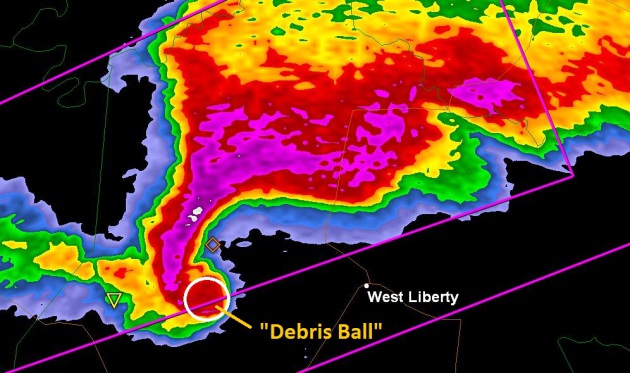
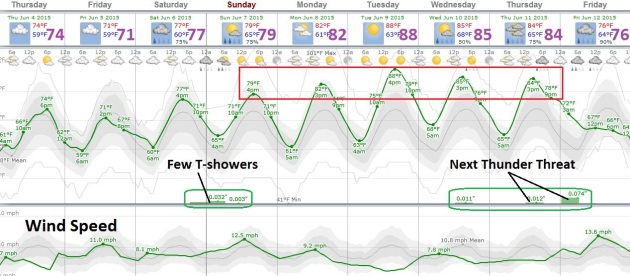
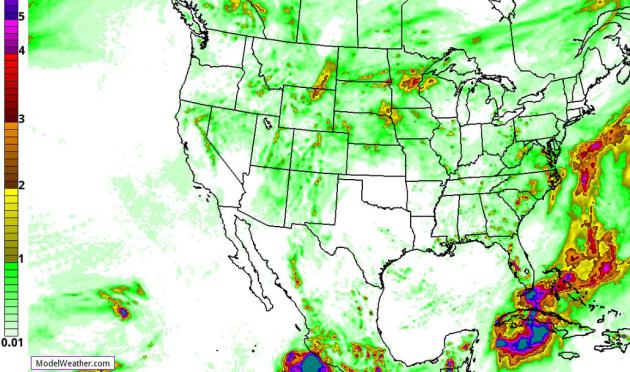

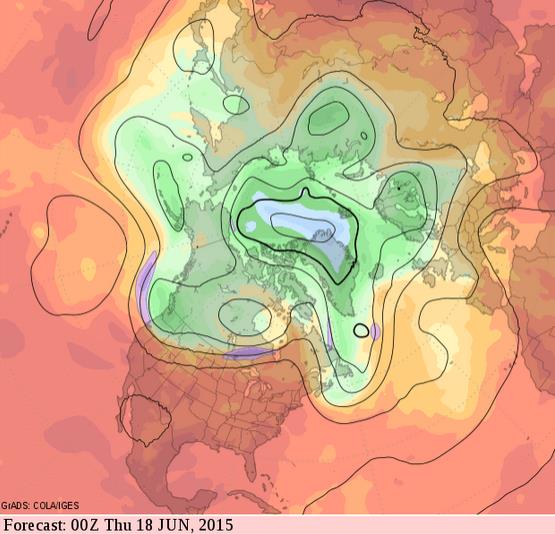
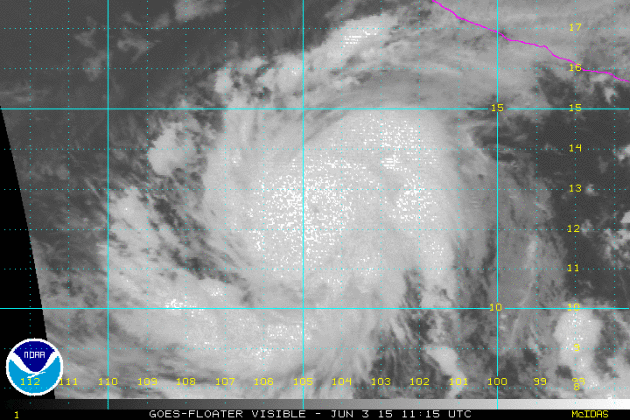

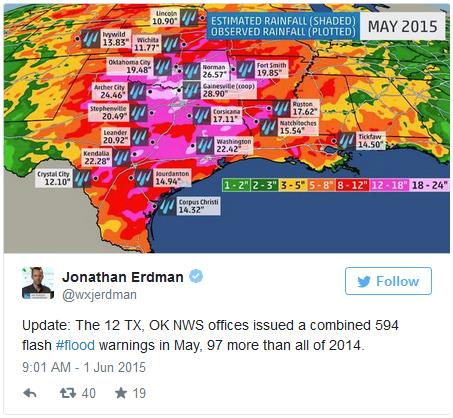
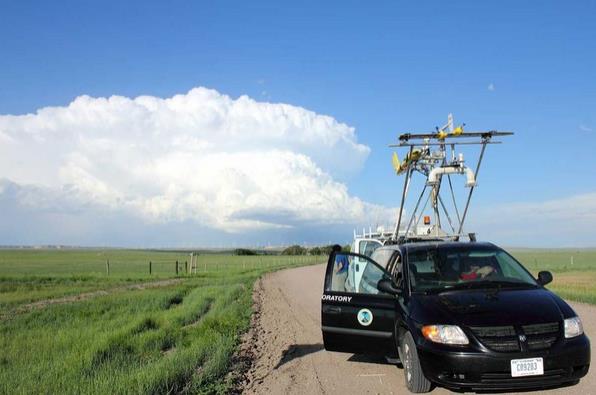







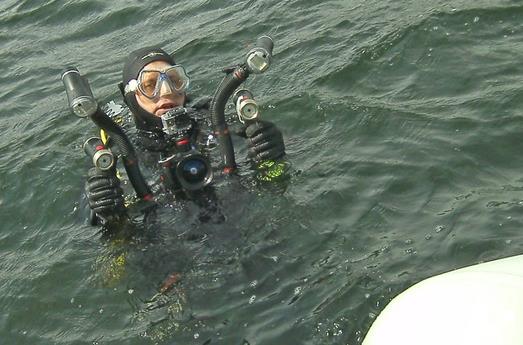

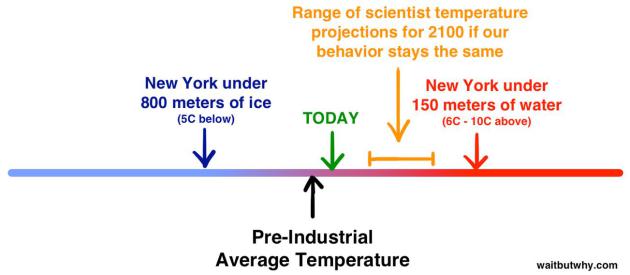
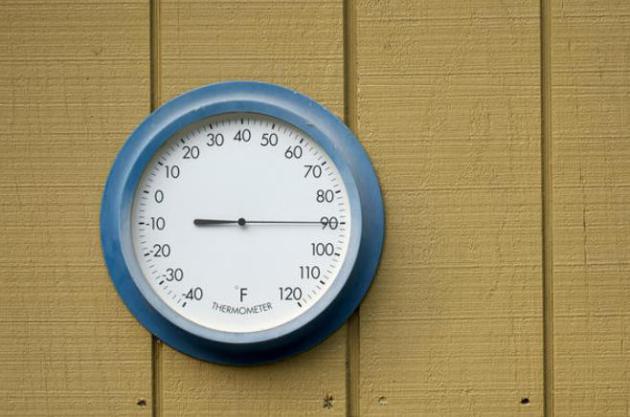

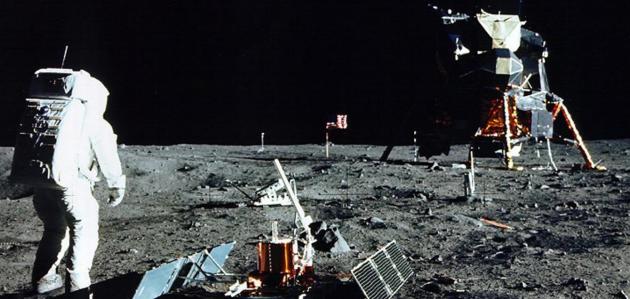
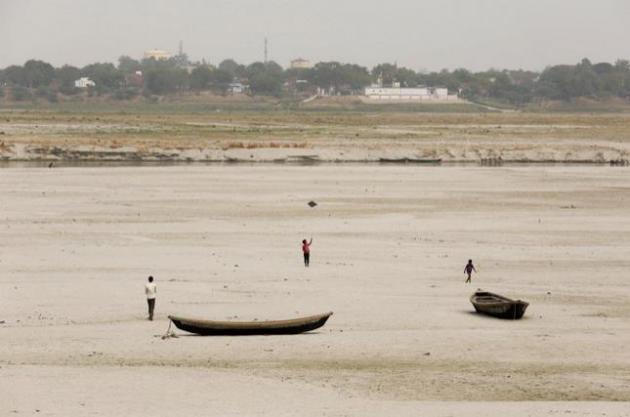






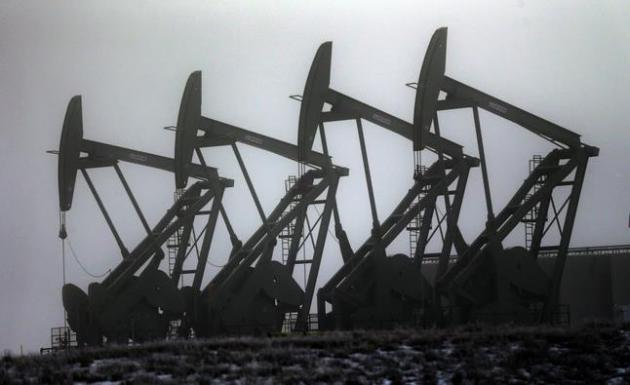
No comments:
Post a Comment